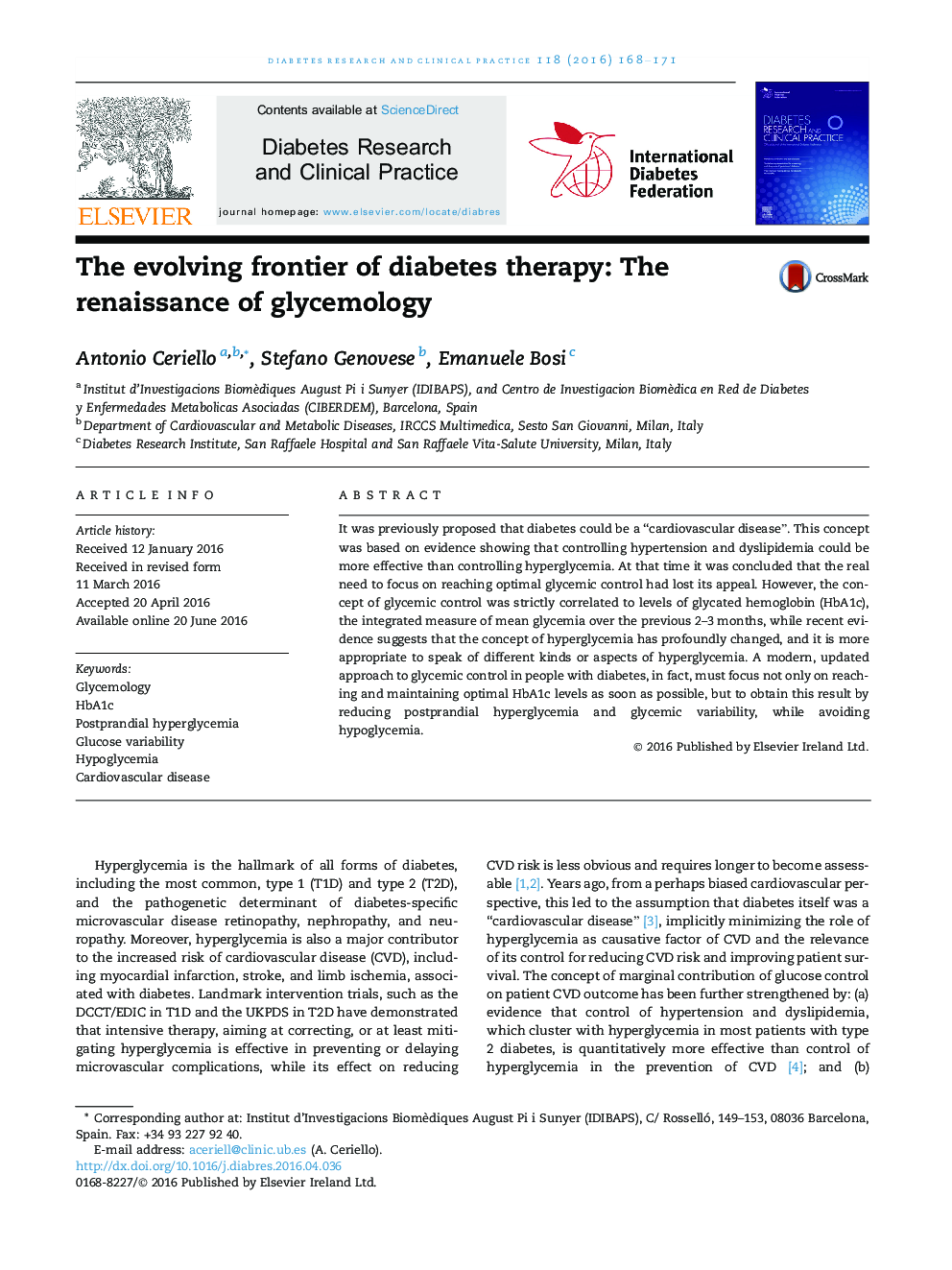| Article ID | Journal | Published Year | Pages | File Type |
|---|---|---|---|---|
| 5898804 | Diabetes Research and Clinical Practice | 2016 | 4 Pages |
â¢Diabetes is considered a cardiovascular disease.â¢The control of HbA1c, is considered not important for the prevention of CVD.â¢The use of HbA1c as sole marker of glucose control is inadequate.â¢HbA1c includes postprandial glycaemia, glucose variability and hypoglycaemia.â¢Nowadays, controlling all these aspects of hyperglycaemia is mandatory to avoid CVD.
It was previously proposed that diabetes could be a “cardiovascular disease”. This concept was based on evidence showing that controlling hypertension and dyslipidemia could be more effective than controlling hyperglycemia. At that time it was concluded that the real need to focus on reaching optimal glycemic control had lost its appeal. However, the concept of glycemic control was strictly correlated to levels of glycated hemoglobin (HbA1c), the integrated measure of mean glycemia over the previous 2-3Â months, while recent evidence suggests that the concept of hyperglycemia has profoundly changed, and it is more appropriate to speak of different kinds or aspects of hyperglycemia. A modern, updated approach to glycemic control in people with diabetes, in fact, must focus not only on reaching and maintaining optimal HbA1c levels as soon as possible, but to obtain this result by reducing postprandial hyperglycemia and glycemic variability, while avoiding hypoglycemia.
